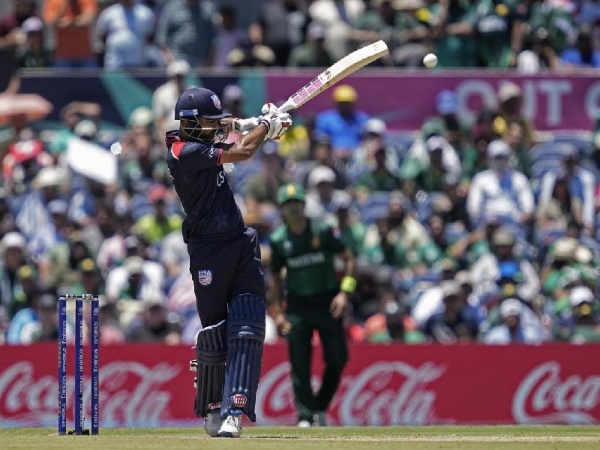T20 World Cup 2024: Monank Patel Speaks After Pakistan Win
In a riveting T20 World Cup showdown at the Grand Prairie Stadium in Dallas on June 6, the United States showcased their prowess by outclassing Pakistan. Winning the toss and electing to field first, the USA immediately applied pressure on Pakistan's batting lineup, making significant inroads with early wickets. Within the initial five overs, Pakistan found themselves reeling at 26 for 3, struggling to find their footing against the formidable American bowling attack. Despite their efforts, Pakistan could only muster a total of 159 runs by the end of their allotted 20 overs.
When it was their turn to bat, the USA seemed to be cruising towards victory, firmly in control of the match. However, their momentum faltered in the final four overs, allowing Pakistan to make a late surge and level the game. Despite this setback, the USA managed to hold their nerve and emerged triumphant in the nail-biting Super Over. Reflecting on the game, USA captain Monank Patel expressed a tinge of disappointment, admitting that he would have preferred a victory within regular play rather than relying on the Super Over drama.
Patel played a pivotal role in his team's success, leading from the front with a scintillating innings of 50 runs off just 34 deliveries. Meanwhile, star Pakistani batters like Babar Azam and Mohammad Rizwan struggled to make significant contributions, further bolstering the USA's dominance throughout the match.
"When I got out, we were still in the game and I thought we should have finished the game and we should have never gone to Super Over. But the way we kept our nerves and in the Super Over particularly, scoring 18 runs itself gave us a big upper hand to defend the target," said Monank Patel in the post-match presentation.
"The plan was to win the toss and bowl first. And we knew initially first half an hour it would help pace bowlers and the way we kept them quiet and took the crucial wickets in the powerplay, it helped really well. And yeah, 160 on this wicket with one side short boundary, I felt we were always in the game,” he added.
Babar Azam's performance drew scrutiny, particularly as he struggled to find his rhythm early on, scoring only nine runs off the first 23 deliveries he faced. Despite his efforts to accelerate the innings later, his knock concluded at 44 runs off 43 balls. The Pakistan skipper's decision-making also faced considerable criticism, notably his choice to entrust Mohammad Amir with the crucial Super Over, marking Amir's return to international cricket after a four-year absence. This move sparked debate and raised questions about the captain's strategic judgment in a high-pressure situation.
“First 6 overs while batting we didn’t capitalise. Back-to-back wickets always put you on the back foot, as a batter you need to step up and build partnerships. We were not up to the mark in the first 6 overs with the ball. Our spinners also did not take wickets in the middle overs so these things cost us. Very hard, all credit to USA, they played better than us in all three departments. Little bit of moisture in the pitch, it was also two-paced. As a professional you need to assess the conditions,” said Pakistan captain Babar Azam in the post-match presentation.
